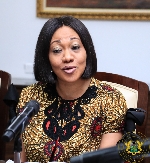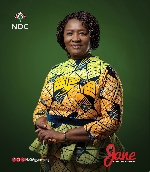Why women enjoy sex less after menopause

Women have less sex as they age. Those who are having sex experience less enjoyment from it, too.
That’s according to researchers in the United Kingdom who report that 23 percent of middle-aged women surveyed had sexual intercourse in the month prior to a study they recently conducted.
While previous research has blamed physical issues for the loss of sexual libido and sexual enjoyment, this study concludes that psychological and emotional reasons may be a larger part of the decline than previously thought.
It’s true that physical symptoms of menopause — hot flashes, vaginal dryness, painful intercourse, and sleep disruption — are a deterrent for intimacy.
But researchers in this study hypothesized common psychosocial changes may equally be to blame for many women’s experiences.
To examine their idea, the study’s authors recruited postmenopausal women between the ages of 50 and 75 to respond to a survey about sexual activity, libido, functioning, and satisfaction. About 4,500 survey responses were included in the analysis.
What they found was that the primary reason for absence of sexual activity was the lack of a partner. This was most often because the woman’s partner had died and the woman wasn’t seeking or hadn’t found a new sex partner.
However, although 65 percent of study participants did have a partner, only 23 percent had been sexually active in the month prior to the study.
Their reasons for not having sex?
These women cited a partner’s medical condition, a partner’s sexual dysfunction, their own physical health, menopause-related symptoms, and medication they were taking.
Other significant reasons mentioned by the study participants included body image concerns, perceived desirability, stress, mood changes, self-confidence, and relationship issues.
“Both physical and psychological factors interact dynamically to impact sexual desire after menopause,” Catalina Lawsin, PhD, a clinical psychologist, told Healthline. “Decreases in both estrogen and testosterone levels lead to decreased libido and are also associated with vaginal dryness, hot flashes, and changes in orgasm.”
These physical changes, Lawsin said, can be psychologically challenging to cope with and can trigger distress associated with changes to a woman’s identity, sense of femininity, and sense of one’s self sexually.
“A common example of the interplay between the psychological and physical factors is when women experience pain during sex due to vaginal dryness,” Lawsin said. “After experiencing painful intercourse, a woman may become tense the next time she engages in foreplay, which then further exacerbates pain, causes distress, and often leads to avoidance of sexual activity.”
“Over time, this avoidance becomes a new habit that maintains low libido, and women are left dissatisfied and tensions in relationships may occur,” she added.
Mind over matter
“Decrease in libido is a normal part of aging for both women and men,” Joy’El Ballard, MD, FACOG, a gynecologist in Annapolis, Maryland, told Healthline.
But experiencing a lack of libido doesn’t have to happen, if you and your doctor can get to the root cause. “And for many women, it could be multiple [things],” Ballard said.
Physical changes are no small issue, that’s for certain.
“Many postmenopausal women suffer from symptoms of genitourinary syndrome of menopause (GSM), formerly vulvovaginal atrophy, atrophic vaginitis causing painful sex,” Mimi Secor, DNP, FNP-BC, FAANP, FAAN, a nurse practitioner and educator in Onset, Massachusetts, told Healthline. “This can lead to loss of desire and fear that sex will continue to be painful. This can lead to avoiding sex and loss of libido or desire.”
These physical issues can compound and turn into emotional ones.
“Unfortunately, anxiety feeds on avoidance, and when avoidance of sexual activity — of any form, including cuddling — becomes the primary coping strategy to decreased libido, this habit can be hard to break,” Lawsin said.
Many women in this study reported not seeking help for any of the issues they were experiencing. In fact, only 6 percent of study participants had sought medical help for sexual problems.
“Luckily, there’s medical and psychological treatments that can help rekindle libido,” Lawsin said. “Unfortunately, there’s a gap between who needs support and who gets it.”
Reclaiming sexuality
Men’s sexual health got a big boost in 1998, when Viagra hit the market.
The little blue pill, as it’s frequently called, seemed to solve erection problems for many men.
Women, on the other hand, haven’t had their Viagra moment just yet, although many medications have been tried.
Addyi, an oral tablet, is approved for low libido by the Food and Drug Administration (FDA), Ballard says.
Ristela increases the blood flow to the genital region.
Last month, Vyleesi became the second FDA-approved medication for boosting women’s libido. Like Viagra, this medication is designed to be used on an as-needed basis. It’s the first drug, so far, to have this benefit.
But Addyi hasn’t been the hit developers— and perhaps women — had hoped. It’s only been prescribed several thousand times, and the FDA issued a warning about possible negative interactions with alcohol.
And as this new study suggests, taking a pill is unlikely to address the psychological issues that are leading to sexual disconnects between couples. Specific treatments are necessary to fully address the multifaceted reasons women report they aren’t having enjoyable sex.
“Psychologically, cognitive-behavioral approaches to manage negative self-talk and triggers to distress surrounding low libido have proven effective,” Lawsin said. “In long-term relationships, it’s important to include the partner in treatment to foster effective communication and mitigate the silence that’s common in the bedroom. Decreased sexual frequency continues to be a common tension among long-term partners, both women and men.”
“Libido and sexual energy is a very complex topic,” Dr. Steven A. Rabin, FACOG, a gynecologist in Burbank, California, told Healthline. “Many factors play a role, and it’s not just about getting a magic pill and feeling lustful in five minutes.”
“Menopause can hit each of us women in all sorts of ways, but regardless of how it hits you, it’s a change, and a major one at that,” Lawsin added.
Self-care, including diet and exercise, can boost both physical and mental health and well-being, she says. But there’s no substitute for treatment from a professional.
“We are in control of our sexuality and our sexual experience. Therefore, it’s up to each of us to use this power to embrace our sexuality and assert our needs,” Lawsin said.
Source: www.healthline.com
Source: David Apinga
Trending News

A/R: 'Must I to apologise for doing my security work?' – Osei-Mensah rubbishes ECG workers’ call for apology over GM’s arrest
13:11
Ejisu: CPP seeks injunction to stop April 30 By-election
08:33
Murder of US national: Police arrest 2 at Assin Prasso
10:31
Lack of public purse protection ‘pathetic’ – Sam Jonah calls out ‘weaponisation of state agencies against opponents, assault on press freedom'
04:02
Dec 7 polls: Let’s stay united, do away with internal disputes – Asiedu Nketiah to NDC members
12:18
NDC to outdoor Prof Naana Opoku-Agyemang as running mate today
08:29
Movement for Change can evolve into a political party in the future: Kyerematen
13:20
Let's do away with 'slash and burn' politics- Adutwum
03:26
UW/R: I can’t’ve the man I defeated as my successor – Akufo-Addo tells Wa Naa
12:15
Submit 2023 audited financial statements by May – Akufo-Addo orders SOEs
07:48



